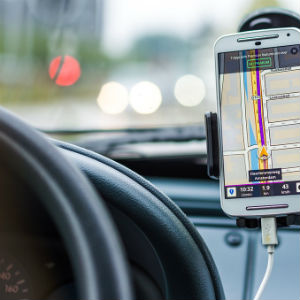After Uber Lawsuit, Three “Sharing” Companies Face Contractor Claims
Three more trailblazers of the so-called “sharing economy” were hit by wage and hour lawsuits on September 23, 2015. Following the certification of a class action against Uber, GrubHub, DoorDash and Caviar now face allegations that they misclassified employees as independent contractors.
GrubHub, DoorDash, Caviar Misclassify Employees, Drivers Say
All three lawsuits were filed by San Francisco delivery drivers who believe they were unlawfully deprived of overtime pay, the minimum wage and other benefits of employment, including reimbursements for gas and parking fees. The Los Angeles Times picked up the story first.
The claims against GrubHub and DoorDash seek class action certification, but will have to wait for a federal judge’s approval on that count. The lawsuit filed against Caviar demands arbitration proceedings.
Several Uber lawsuits have seen significant decisions passed down in favor of drivers, which has put other companies that rely on classifying workers as independent contractors on notice.
What GrubHub, Caviar & DoorDash Do
DoorDash and Caviar provide similar services. Through the companies’ mobile apps, users can order food from local restaurants, ones that don’t normally provide delivery. The companies send the order information on to a restaurant and then, like Uber, incentivize a network of delivery drivers to pick up and deliver the orders when ready.
Caviar generally facilitates delivery from restaurants who would not otherwise provide the service, usually higher-priced fare that draws crowds to a physical location on quality alone.
GrubHub began more like a simple listing service: restaurants that already offered delivery advertised their selections on the company’s app. GrubHub only facilitated the ordering process, while the restaurants themselves fulfilled delivery. But after acquiring two large delivery companies in February 2015, GrubHub began offering its own delivery service in a dozen US cities, according to Fortune.
What Is The Sharing Economy?
Along with companies like Uber and Lyft, DoorDash, Caviar and GrubHub represent some of the largest players in what has become known as the “sharing” or “on-demand” economy.
The companies argue that they simply offer the public technology: a mobile app that allows private individuals to advertise their own services to potential customers. Effectively, these individuals use the apps to “share” their own resources, like the use of a car, with other people. Thus, delivery drivers aren’t truly employees, but people in business for themselves, the classic definition of an “independent contractor.” That’s the party line at least.
Companies within the sharing economy rely on this business model, and having to classify delivery drivers as employees would really cut into their profits.
Employees are entitled to all the protections of federal wage and hour laws, including a minimum wage of at least $7.25 per hour and overtime pay at time-and-a-half. Independent contractors aren’t, and companies don’t have to pay as much taxes or offer benefits to contractors, either.
Are The Delivery Drivers Actually Independent Contractors?
While that question must be left for a judge or jury to decide, traditional definitions of an independent contractor usually hinge on the question of control. How much control are the drivers allowed to exert over their own work? The more control a worker actually has, the more likely they are to be an independent contractor, and thus not entitled to overtime wages.
Plaintiffs, both those who have filed an Uber lawsuit and those filing claims against GrubHub and DoorDash, say the companies control every aspect of their working lives. For example, the “sharing” companies set fares and fees and withhold the right to delete a driver’s account, effectively “firing” them.
But the most recent guidelines from the Department of Labor have changed the industry’s understanding of independent contractors substantially. The question of control has become one among many that a court is likely to take into account, and other questions have come to the fore:
- Do the drivers actively market their skills outside of the apps offered by Uber, GrubHub, DoorDash and Caviar?
- Have they made significant financial investments themselves?
- Are they economically independent from the companies?
Answering “yes” to several of those questions would generally indicate that the drivers are in fact independent contractors. But answering “no” would suggest that the drivers are “economically dependent” on the companies, and thus employees.
